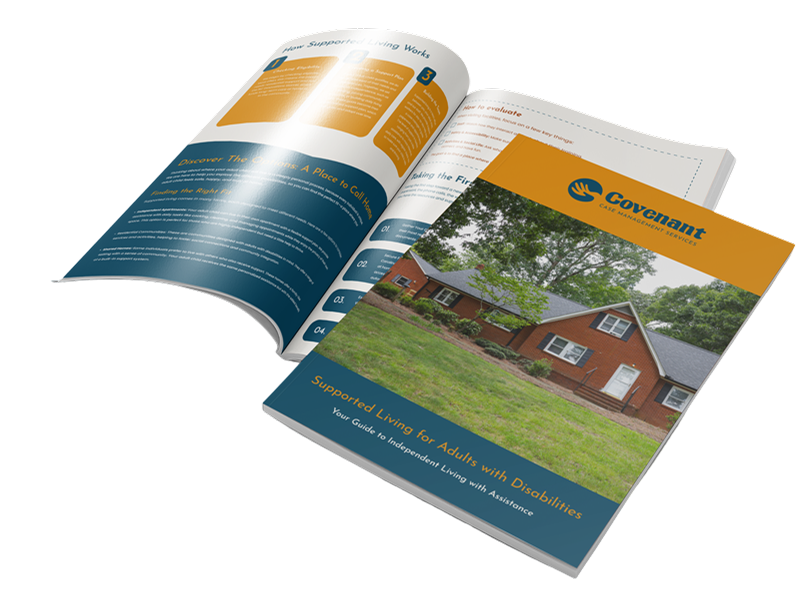
What is IDD? A Comprehensive Guide to Understanding Intellectual and Developmental Disabilities
Justin Henning
Oct 10, 2025
Get the Guidance You Deserve, Right to Your Inbox
Whether you’re a caregiver, care professional, or individual seeking independence, We aim to keep you informed and inspired. Receive updates on services, events, and stories of hope by signing up to become a part of our email list below.
Whether you are navigating a new diagnosis for your adult child or seeking to understand more about a condition that has always been a part of your family’s life, IDD can be overwhelming. We understand this journey can feel overwhelming-filled with questions, and sometimes so many that it’s hard to know where to begin. You’re not alone, and you don’t have to have it all figured out to take the next step.
We believe that clarity and compassion are essential as you seek to understand IDD. Yes, it’s a medical term, but it doesn’t define your loved one’s potential. Every person has unique strengths waiting to be nurtured and celebrated.
We’re here to walk with you, offering guidance, education, and encouragement-so you can feel more confident about the road ahead. With the right support and a shared sense of purpose, brighter futures are always possible.
What is IDD?
IDD stands for Intellectual and Developmental Disabilities. These are conditions that impact how a person learns, functions, and interacts with the world. They can be broken up into Intellectual Disabilities (ID) and Developmental Disabilities (DD) as defined below.
Intellectual Disabilities primarily affect a person’s ability to learn, reason, and solve problems. This can impact their academic progress, daily living skills, and their understanding of social cues. While individuals with intellectual disabilities may learn at a slower pace, they are fully capable of acquiring new skills and living fulfilling lives.
Developmental Disabilities are a broader category. These conditions begin during a person’s developmental years, typically before the age of 22. They may influence physical abilities, learning styles, language development, or behavior. The nature and impact of these conditions can look very different from one person to the next. Each individual’s experience is unique, which is why understanding and personalized support matter so deeply.
Often, you will see “Intellectual” and “Developmental Disabilities” used together as “IDD.” This is because many individuals experience overlapping challenges that fit both descriptions. Whether it’s an intellectual or a developmental disability, or both, our focus remains on supporting your adult child’s unique strengths and needs.
Common Types of IDD
It is important to remember that each person’s experience with IDD is unique, even if they share a diagnosis. These four examples simply provide a framework for understanding the diverse ways IDD can present itself.
1. Autism Spectrum Disorder (ASD)
ASD is a developmental disability that affects communication and behavior. Individuals with ASD may have unique social interactions, non-verbal communication challenges, and repetitive behaviors.
2. Down Syndrome
Down Syndrome is a genetic condition that typically causes developmental delays and intellectual disabilities. People with Down Syndrome often have distinct physical characteristics and may experience a range of health issues.
3. Cerebral Palsy
Cerebral Palsy affects a person’s ability to move and maintain balance and posture. It is a developmental disability caused by abnormal brain development or damage to the developing brain.
4. Fragile X Syndrome
A genetic condition, a leading inherited cause of intellectual disability. It can also impact communication, social behavior, and physical development.
5. Fetal Alcohol Spectrum Disorders (FASD)
These are a group of conditions that can occur in a person who was exposed to alcohol before birth. These can lead to a range of physical, behavioral, and learning problems, affecting brain development and functioning.
What IDD is Not
It is equally as important to understand what Intellectual and Developmental Disabilities are not.There are many common misconceptions and stigmas surrounding IDD. An IDD diagnosis does not mean your adult child is incapable of living a fulfilling life. It absolutely does not mean they cannot learn, grow, or contribute meaningfully to their communities.
We often encounter the misconception that IDD limits a person entirely. This is simply untrue. Individuals with IDD have unique strengths, talents, and aspirations, just like anyone else. The goal is never to “cure” or “fix” a disability, but rather to provide the right support for individuals to thrive. We firmly believe in seeing the person first, not just the diagnosis. Your adult child is not defined by their IDD; they are a unique individual with immense potential, deserving of dignity and respect.
How Covenant Supports Individuals with IDD
At Covenant, we believe in a whole-person, family-centered approach to supporting individuals with IDD. Our goal is to work alongside you to help your adult child thrive, fostering independence, confidence, and meaningful connections within their community. We understand that every family’s needs are unique, and we tailor our services to meet those specific requirements.
We offer a range of services designed to provide comprehensive support.
- ResourceGuide (Tailored Care Management) helps you navigate the often-complex system of care, ensuring your adult child to receive coordinated and appropriate services.
- For those seeking greater independence in their living situation, our Independence (Supported Living and Residential Programs) provide safe and nurturing environments. These programs focus on building daily living skills, from managing personal hygiene to preparing simple meals, fostering greater autonomy.
- If you’re looking to lead your adult child into a career, Supported Employment, like Pathways, are crucial for helping individuals find meaningful work and purpose. We work to ensure long-term success and growth within a role, providing job coaching and support every step of the way. For fostering a community, our HeartLink (Peer Support Services) offer invaluable connections, allowing individuals to share experiences and build a sense of belonging. Our DreamCenter (Day Program) provides daily structure and opportunities for engagement, from creative expression to vocational skills.We also offer Thrive (Specialized Care and Therapy Services), addressing unique needs with professional expertise. GracePause (Respite Care), provides essential breaks for caregivers, helping to maintain overall family well-being. Community integration is at the heart of what we do; services like UnityLink (Community Networking) connect individuals to local activities and groups, fostering a sense of belonging.
Every service we provide aims to help your adult child build a life once thought impossible.
Read more: Helping your Adult Child Discover Purpose
We See Ability, Not Just Disability
We hope this blog has provided you with a clearer understanding of Intellectual and Developmental Disabilities. Remember, individuals with IDD can thrive and lead meaningful lives when they have the right support systems in place. We encourage you to reach out for the help, resources, and community, available to you through Covenant. We’re by your side, every step of the way.
SVP Marketing
Download Your FREE Supported Living Guide!



